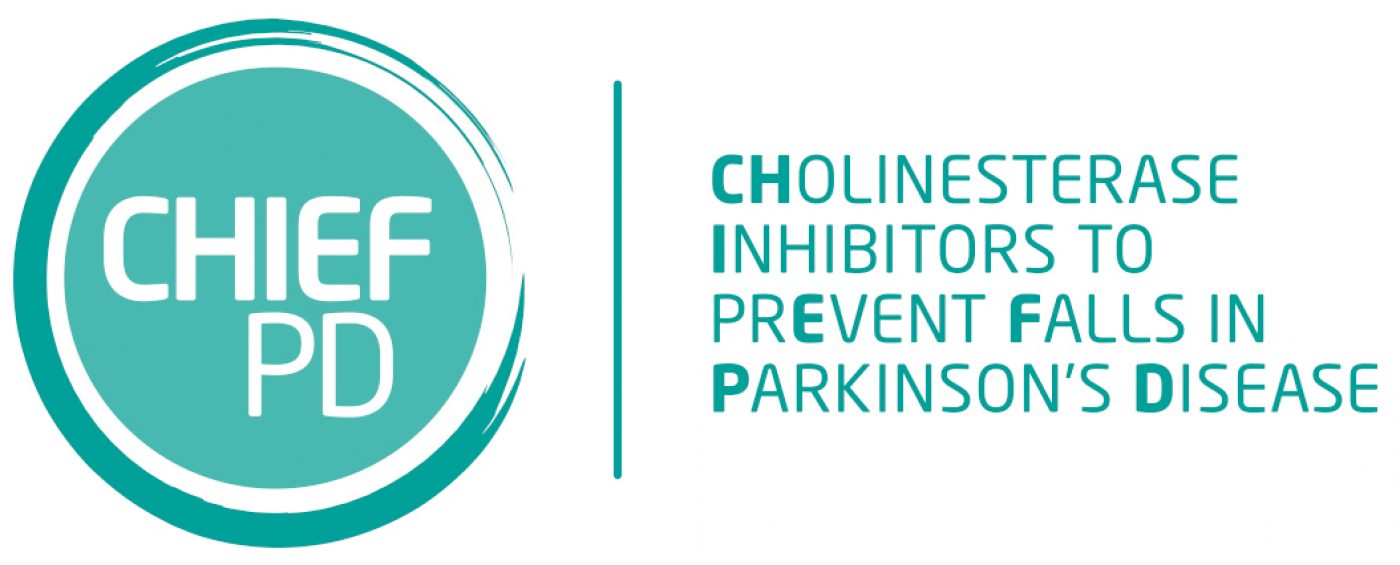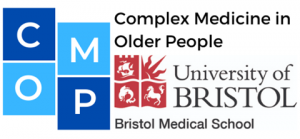CHIEF-PD
Cholinesterase Inhibitors to PrEvent Falls in Parkinson’s Disease
This £2.1 million NIHR funded phase III trial will determine whether the cholinesterase inhibitor, rivastigmine, reduces falls in people with Parkinson’s disease. It follows on from promising results found in the phase II trial that was set up and executed by Dr Emily Henderson and is published Lancet Neurology.
The trial has successfully recruited 600 people with idiopathic Parkinson’s disease making it the largest trial of a novel drug treatment run in the UK.
Read more about the trial and taking part.
Email: chief-pd@bristol.ac.uk
Phone: 0117 428 3113
PRIME Parkinson UK
Proactive and Integrated Management and Empowerment in Parkinson’s Disease
This programme runs a wide variety of studies, one of which is a Randomised Control Trial (RCT). We believe that current models of care are not optimised for people with Parkinson’s, and the wide range of symptoms and different experiences each individual may have. Therefore, we have developed a new model of care, termed “PRIME Parkinson Care” which aims to provide additional support to understand the condition and how best to manage symptoms.
The PRIME Parkinson randomised controlled trial compares the PRIME Parkinson Care with the usual care provided by the NHS and other healthcare services. It has been set up by the University of Bristol, together with healthcare professionals at the Royal United Hospitals Bath NHS Foundation Trust, who care for people with Parkinson’s.
Read more about the trial and taking part.
Email: prime-parkinson@bristol.ac.uk
CMOP
Complex Medicine in Older People
CMOP is an 18 week clerkship that takes place in the 4th year of study at Bristol Medical School. As the name implies, the clerkship is focussed on equipping tomorrow’s doctors with the knowledge and skills required to care for older people with complex health and social care needs.
Read more about the CMOP curriculum evaluation and innovation.
Twitter: @GerisMedEd #CMOPBookClub
STOMP: Tackling Discrimination
Students and Trainees On Medical Placements
This trial uses mixed-methods to explore medical students’ experience of inappropriate and distressing behaviour from patients relating to the students’ personal characteristics, and the extent to which the training they receive at medical school empowers them to deal with and/or escalate these interactions appropriately.
Twitter: @StompStudy #STOMPStudy
STRIPE
Stimulation of the Tibial nerve Repetitively to Improve Incontinence in Parkinson’s Electronically
Bladder symptoms are common in Parkinson’s disease and have significant impact on quality of life as well as implications for morbidity, contributing to falls and hospital admission. However, the treatment of bladder symptoms can be complicated and better treatments are required. STRIPE is a phase II randomised control trial that aims to determine whether electrical stimulation of the tibial nerve improves overactive bladder symptoms. We aim to recruit 220 individuals with Parkinson’s disease who have symptoms of urgency, nocturia or both in combination and are able to travel the the RICE research centre near Bath.
email :stripe-trial@bristol.ac.uk





